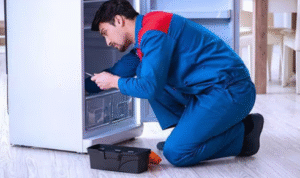The thing about heating systems is you don’t really notice them when they’re working. They hum in the background, quietly keeping your space comfortable while you go about your day. It’s only when something goes wrong—when that familiar warmth disappears on a bitter January night—that you suddenly realize how dependent you are on them. I’ve been there myself, bundled up in three layers, waiting for the repair tech, thinking, “Why didn’t I get this checked before winter really set in?”
That’s the nature of home systems, though. They’re invisible until they fail. But when they do, it’s not just inconvenient—it’s stressful, confusing, and sometimes expensive. The good news? With a little bit of know-how, you can make smarter choices when those cold days inevitably arrive.
Why Heating Systems Break Down at the Worst Possible Time
Heating systems rarely fail on sunny, mild days. It’s always in the middle of a cold snap, usually when they’re working their hardest. The reason is simple: stress and neglect. A furnace or heat pump that hasn’t been serviced in years is like a car that hasn’t had an oil change—it might still run, but push it too hard, and it’s going to give out.
That’s why scheduling routine maintenance matters so much. Dusty filters, clogged vents, worn belts—they seem minor, but they’re the very things that cause sudden breakdowns. And when you’re searching desperately for heating system repairs, you’ll quickly learn how many homeowners wait until it’s already too late.
The “Near Me” Search Dilemma
We live in a world where the first reaction to any problem is to grab the phone and type in “near me.” It makes sense—you want someone close, fast, and hopefully reliable. The trouble is, proximity doesn’t always equal quality. I’ve heard plenty of stories about homeowners who searched heating furnace repair near me and ended up with a tech who was quick to arrive but slow to actually fix the problem.
So, what do you do? For starters, don’t just click the first ad at the top of Google. Look deeper. Check reviews, ask neighbors, or even call a couple of companies to see how they respond. Are they rushing you off the phone with vague pricing, or are they taking time to answer questions? Those little cues matter.
When Repair Isn’t Enough
There comes a point when repairs start to feel like putting band-aids on something that’s already too far gone. If you’ve called a technician three times in a single season, or your energy bills keep climbing despite “fixes,” then it may be time to think bigger. Replacement sounds intimidating, but it’s often the smarter long-term move.
This is where trusted local providers really make a difference. I’ve seen companies like Wisdom Refrigeration heating replacement step in, not just pushing the newest, fanciest furnace, but actually helping homeowners weigh whether replacement makes sense for their budget and usage. That kind of honesty is what sets apart a company you’ll keep on speed dial from one you’ll never call again.
Signs You Might Be Due for Replacement
Sometimes it’s hard to tell if a system just needs a little care or if it’s singing its final tune. A few telltale signs:
- Your furnace is 15–20 years old (or older).
- The system makes strange noises—grinding, banging, or whistling that wasn’t there before.
- Some rooms feel warm, while others stay freezing.
- Repairs are happening more often than regular tune-ups.
- Energy bills keep creeping higher even though usage hasn’t changed.
These are red flags that the system isn’t just inefficient—it’s on borrowed time.
Balancing Cost, Comfort, and Peace of Mind
No one wants to spend money on HVAC work. It feels like the least “fun” home expense because, let’s be honest, a new furnace doesn’t look as nice as new countertops. But when you look at it as an investment in your comfort, health, and even your home’s value, it starts to make sense.
Think of it like this: a reliable heating system doesn’t just keep you warm; it keeps pipes from freezing, prevents costly water damage, and helps maintain indoor air quality. That’s worth more than we often realize—especially when winter storms hit.
Choosing the Right Partner for the Job
If there’s one piece of advice I could give, it’s this: don’t wait until the emergency hits. Find a company you trust now, before you’re desperate. Look for clear pricing, responsive communication, and technicians who explain things without making you feel stupid. The best professionals treat you like a partner in the process, not just a paycheck.
That’s the difference between a random search result and a reliable relationship. The latter might even remind you when it’s time for that annual tune-up, so you’re not left shivering in the middle of the night.
Wrapping It Up
Heating problems have a way of humbling all of us. They remind us how fragile comfort really is—and how quickly it disappears when the systems we take for granted falter. But they also offer a chance to make smarter choices. Whether it’s scheduling maintenance before the cold sets in, finding a trustworthy repair company, or finally deciding on a replacement, each step is a move toward peace of mind.
So the next time you hear that odd rattle in the vents or notice the thermostat struggling, don’t brush it off. Act early, ask questions, and don’t be afraid to invest in your comfort. Your future self—wrapped in a cozy blanket on a snow day—will thank you.


